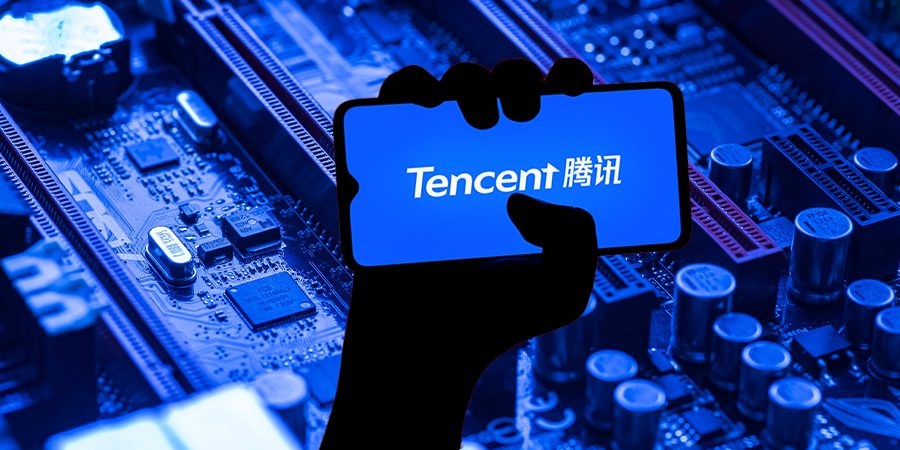In this article, we’ll look at the reasons behind the successful mass production of Tencent’s self-developed video transcoding chip, Canghai, and its impact on the tech industry.
Key Takeaways:
- Tencent’s Canghai chip enters mass production, supporting cloud gaming and video live streaming services.
- The goal of the chip is to solve the challenge of achieving excellent image quality, quick processing, and affordability all at the same time when it comes to encoding and decoding videos.
- Tencent unveiled three self-designed chips in 2021, including Canghai, Zixiao (AI chip), and Xuanling (network interface controller chip).
- The company has long-term plans to invest in semiconductor research and development.
- Tencent’s progress comes amidst US efforts to slow down China’s chip growth.
The Canghai Chip: A Game Changer for Video Transcoding
In an exciting development, Chinese tech juggernaut Tencent Holdings has announced that its self-developed video transcoding chip, Canghai, has now entered mass production.
This innovative chip is all set to revolutionize cloud gaming and video live streaming services.
So, what’s unique about this chip? It focuses on addressing the “impossible triangle” in video encoding and decoding, striving for high image quality, low latency, and low cost.
As a result, Canghai could potentially redefine the way we experience video content online.
Tencent’s Triple Threat: Canghai, Zixiao, and Xuanling
Tencent didn’t stop at just the Canghai chip. In fact, the company has developed three self-designed chips, each with a specific purpose.
In 2021, the company unveiled the Canghai, Zixiao, and Xuanling chips, making a strong statement in the semiconductor space.
The Zixiao chip is an artificial intelligence (AI) powerhouse that aims to boost computing efficiency. Tencent has already deployed this chip to manage its internal businesses.
Meanwhile, the Xuanling chip is a network interface controller designed to help Tencent build the next generation of high-performance network infrastructure.
These three chips demonstrate Tencent’s commitment to diversifying its offerings and pushing the boundaries of technology.
Expanding Horizons: Tencent’s Commitment to Semiconductors
Tencent might be best known for its popular messaging platform, WeChat, but the company has its sights set on bigger things.
Tencent has revealed that it has long-term plans to research, develop, and invest in the semiconductor industry. Already, several of its chips have entered the market on a large scale.
By entering the semiconductor space, Tencent is heeding Beijing’s call for Chinese tech giants to contribute to the nation’s development of its own semiconductor industry.
With the company’s strong track record in software, its foray into hardware could make a significant impact in the tech world.
Navigating Geopolitical Challenges: The Chip Industry amidst US Regulations
Tencent’s expansion into the semiconductor industry hasn’t been without its challenges.
The United States and its allies, including the Netherlands and Japan, have been implementing increasingly stringent regulations to slow down China’s growth in the chip industry.
The goal of export controls is to stop Chinese businesses from accessing advanced computer chips, and also to block them from getting the tools they need to make their own.
In response, some companies like Nvidia have modified their chips to comply with new export controls, enabling them to sell to China.
Despite these geopolitical challenges, Tencent has forged ahead, achieving mass production with its Canghai video transcoding chip.
This development is a testament to the company’s determination and resilience in a complex and competitive landscape.
Conclusion
The mass production of Tencent’s Canghai chip marks a significant milestone for the company and the Chinese semiconductor industry.
As Tencent continues to develop its cutting-edge technology, we can expect to see substantial advancements in video encoding and decoding, cloud gaming, and video streaming services.
The company’s commitment to research and development in the semiconductor space, combined with its triple threat of Canghai, Zixiao, and Xuanling chips, is sure to make waves in the industry.
While geopolitical challenges pose obstacles for companies like Tencent, their progress in the face of adversity sends a powerful message and ushers in a new era for the tech world.
 Sections of this topic
Sections of this topic
















